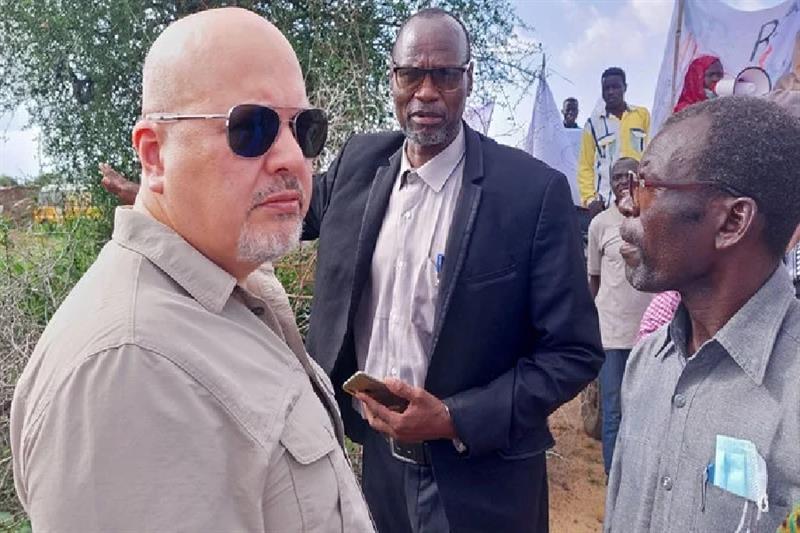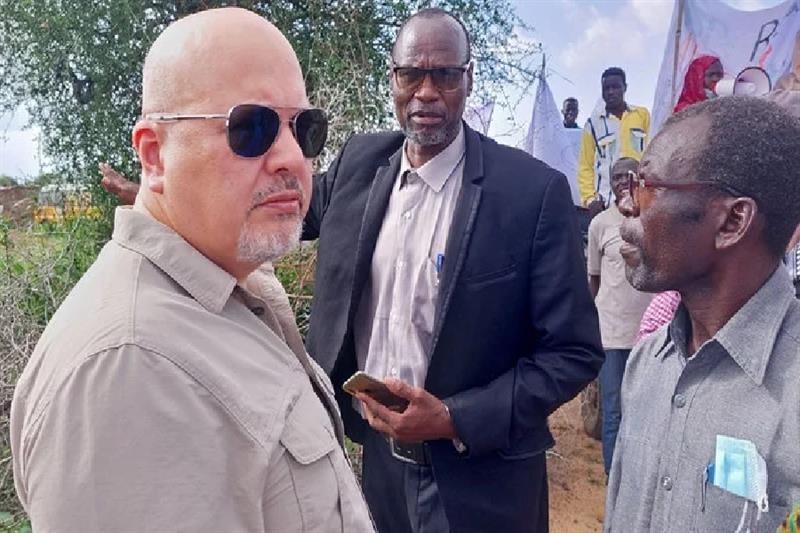
International Criminal Court s chief prosecutor Karim Khan (L) visits the Kalma camp for internally displaced people in Nyala, the capital of South Darfur
UNITED NATIONS, Aug 24 (NNN-AGENCIES) —The International Criminal Court’s chief prosecutor expressed frustration over the lack of accountability for crimes committed during the Darfur conflict, telling the UN Security Council that survivors in Sudan need “action, not words.”
Karim Khan addressed the council by video during a visit to Sudan, describing trips to Darfur, where the UN says 300,000 people were killed and two and a half million fled their homes during the conflict that began in 2003.
There, in camps for internally displaced people, Khan said he was greeted with “gratitude” by the population.
He said he “felt very moved, quite frankly, because the gratitude was not in proportion to what we’ve done” on addressing war crimes in the region.
“We need to accelerate action… It requires delivery, not promises, because they are tired of promises. And I think this is the time to move forward,” he said.
He called on the council to hold a session in Sudan, saying he felt that if members heard directly from people in the camps, it would help “reawaken our commitment to humanity.”
And he noted that authorities in the country have taken a “backward step” on cooperating with the ICC in recent months.
Khan also met on Tuesday with the number two in the military regime in Khartoum, Mohamed Hamdan Daglo.
He is expected to meet Wednesday with army chief Abdel Fattah al-Burhan, who led a coup last October.
Khan’s visit will continue until Aug 25, Sudanese state media has said.
Sudan has been reeling from deepening unrest, a spiraling economic crisis, and a spike in ethnic clashes, including in Darfur, since last year’s coup.
That upended a fragile transition put in place following the ouster of president Omar al-Bashir, who was deposed in 2019 following months of protests.
Bashir remains wanted by the ICC over his role in the Darfur conflict, which pitted ethnic African minority rebels complaining of discrimination against his Arab-dominated government.
Khartoum responded by unleashing the notorious Janjaweed militia, recruited from among the region’s mainly Arab nomadic peoples.
Human rights groups have long accused Bashir and his former aides of using a scorched earth policy, raping, killing, looting and burning villages.
Since his ouster, Bashir has been held in Khartoum’s Kober prison along with several of his former aides who are also wanted by the ICC.
In April, senior Janjaweed militia leader Ali Muhammad Ali Abd al-Rahman, also known by the nom de guerre Ali Kushayb, faced the ICC in its first trial for war crimes in Darfur. — NNN-AGENCIES






